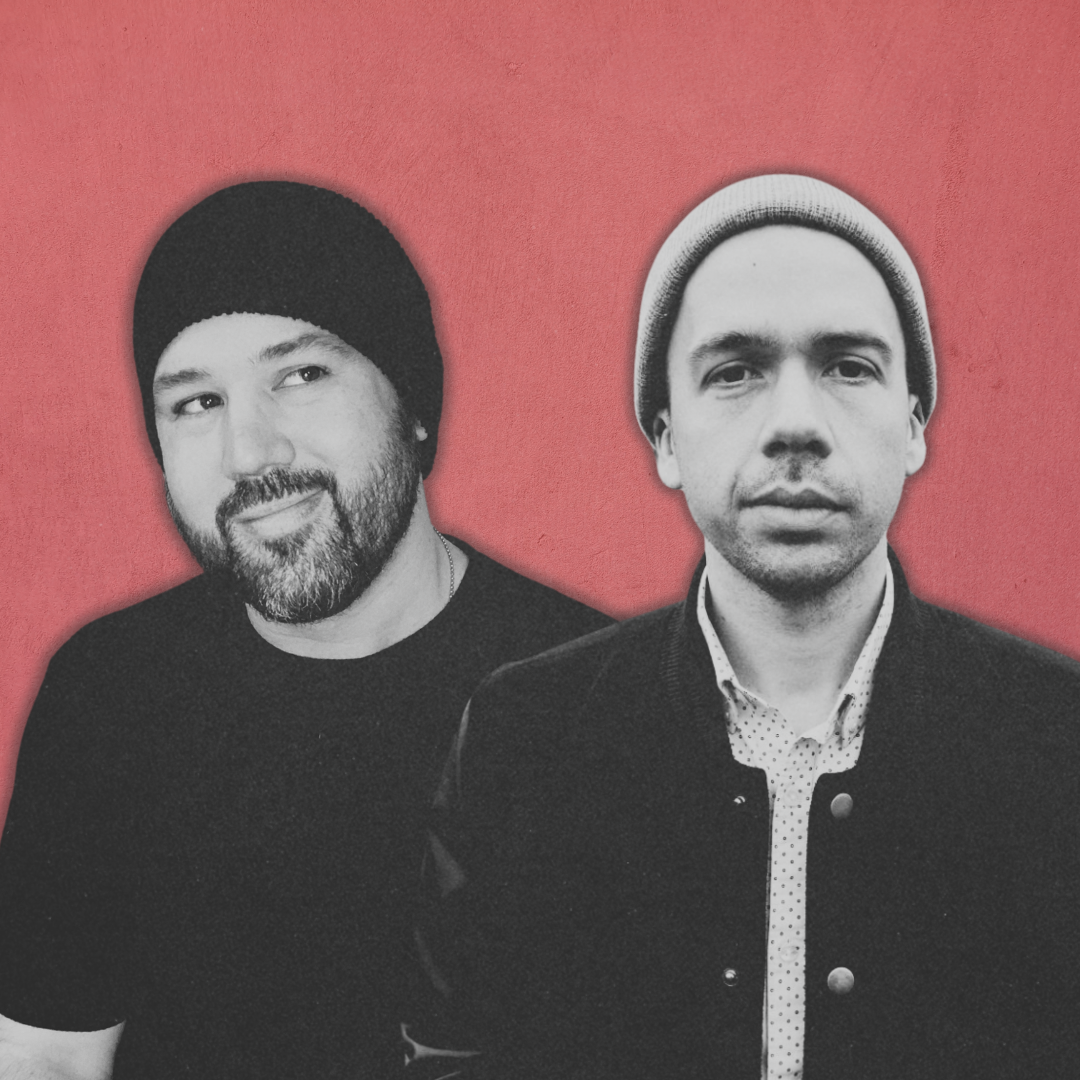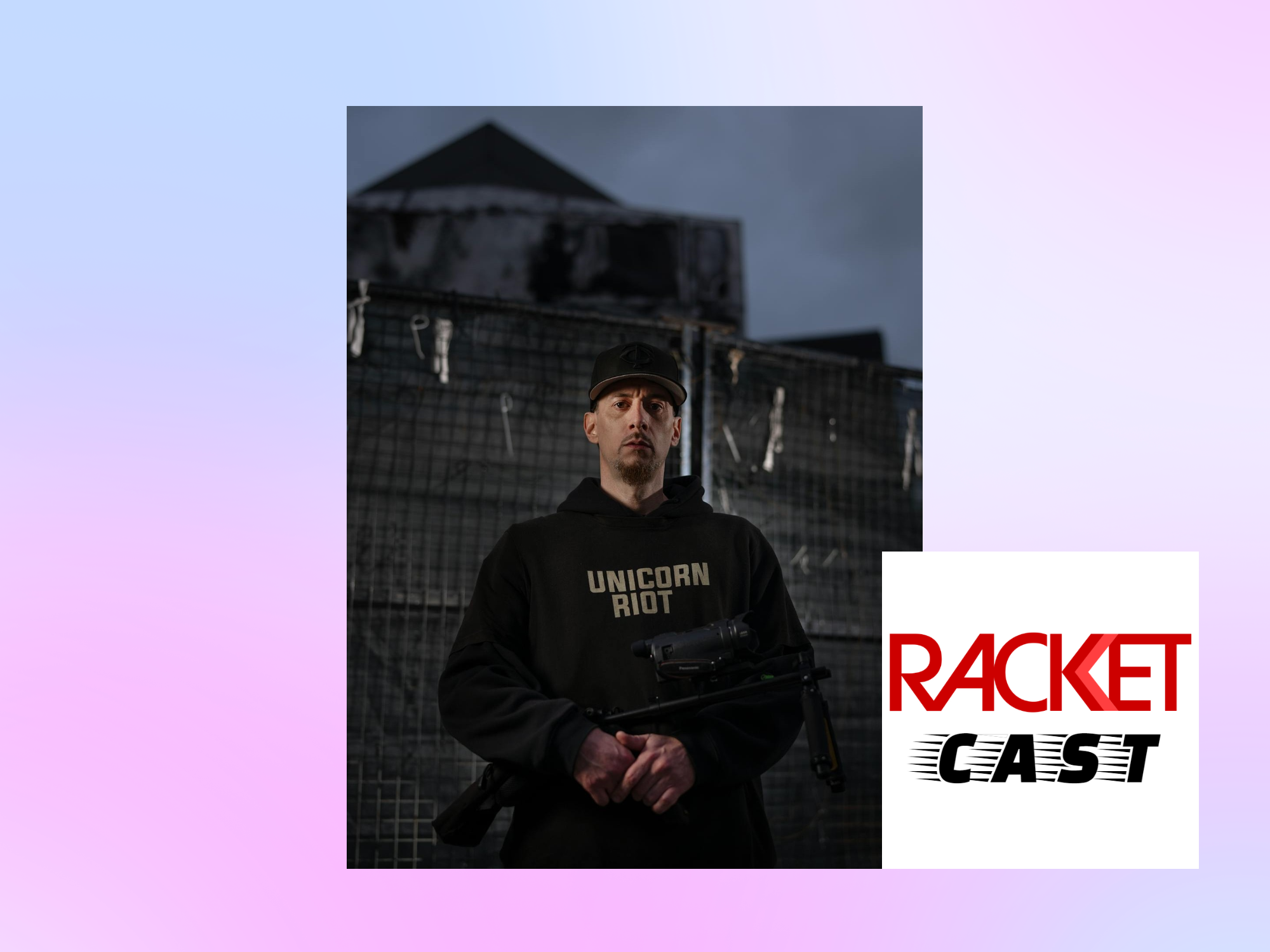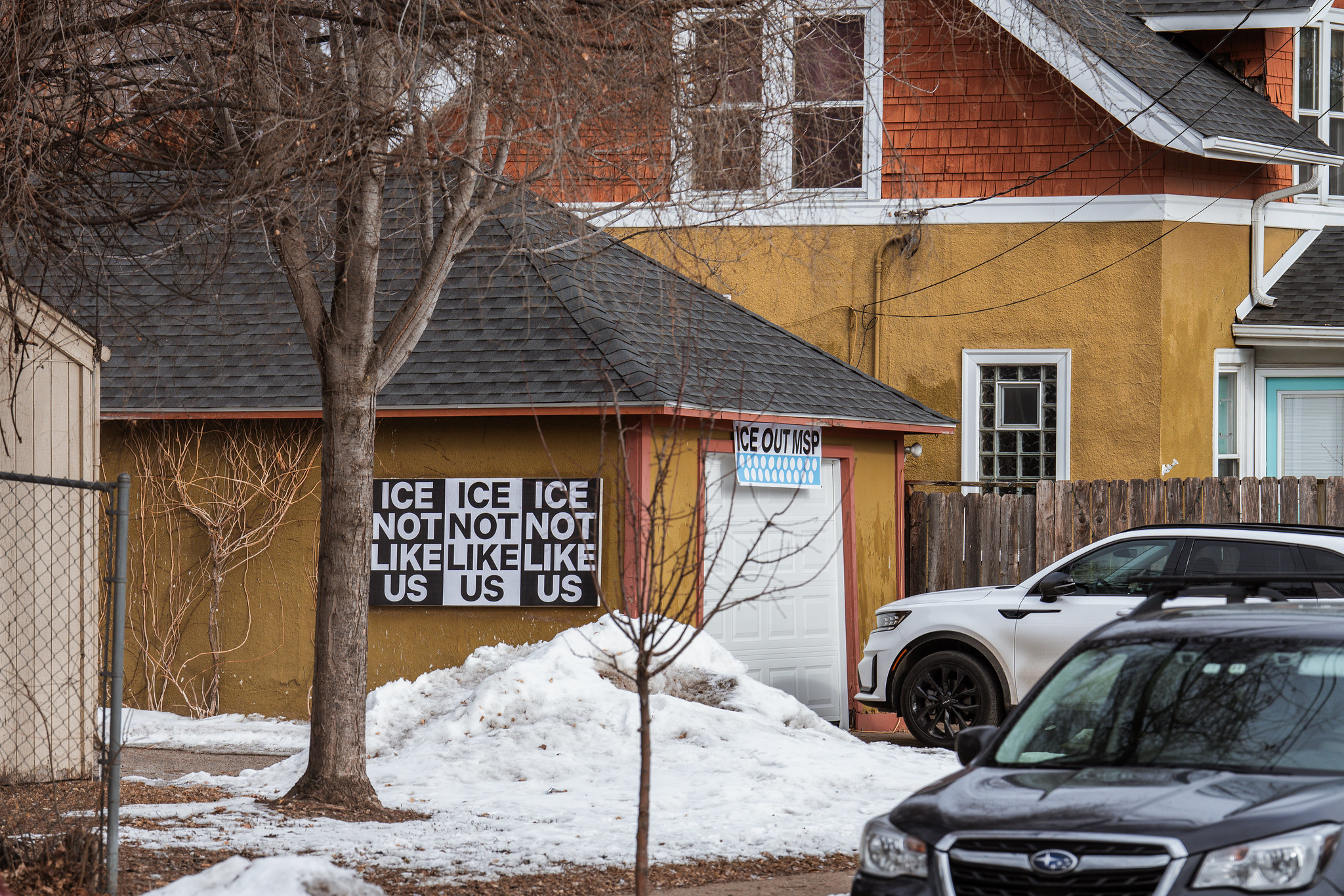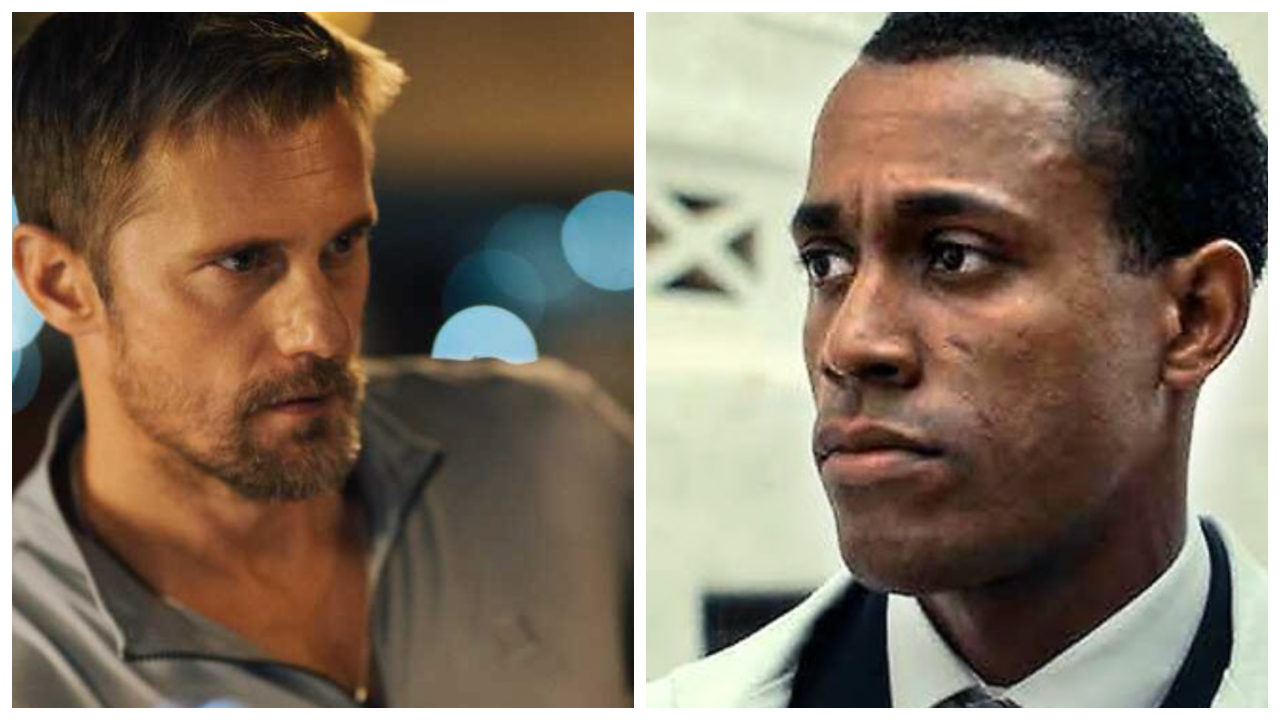As Guante, Kyle Tran Myhre has been crafting politically engaged rap for 15 years in collaboration with producer Big Cats (Spencer Wirth-Davis). But some topics, such as police violence, blend more easily with a hip-hop ethos than others. Their new album together, All Dressed Up, No Funeral, tackles climate change, and Guante knows what a hard sell that is—the opening track is called “Whatever You Do, Don’t Put the Words ‘Climate Crisis’ in the Title.”
The album addresses the end of the world and our range of emotional responses to impending crisis, while searching for ways to avoid despair. It's inspiring in a way even a downtrodden cynic can relate to. As Guante raps, “So it looks like this is the end. But I mean that in a good way.” The album also asks the big question: How do we make art about issues without either offering easy answers or alienating listeners by preaching?
And that’s one of the questions Tran Mhyre and Wirth-Davis returned to when I met them recently in the northeast Minneapolis studio where they work, where we also talked about Guante’s unexpected Grammy-winning collaboration, how to reach new listeners in 2024, and Fall Out Boy’s unlikely influence on their music.
This interview has been edited for length and clarity.
You say in the liner notes that this is the culmination of 15 years of your work. How does it bring things together?
Kyle Tran Myhre: We've been working together for… 15 years? So in terms of our aesthetic partnership we've both grown. In a broader sense, I do a lot of healthy masculinity work with young men, asking, “What is the dominant culture narrative around masculinity? And then what are our own stories we want to tell?” And then I worked with the MPD150 abolitionist group and then through the uprising around asking, “What is the story we tell about policing and punishment?” My everyday work is all around storytelling and creating counter narratives. So all of that experience was funneled into this writing project.
And when did the project begin?
Spencer Wirth-Davis: I had taken some time off from releasing music and was looking for ways to get back into collaborating with other folks, instead of just making stuff on my own and not doing anything with it. I was working on what was going to be a series of small collaborations, like two or three songs with different artists. Some of those fizzled out entirely and some of them turned into bigger projects. I sent Kyle a few beats, he wrote to a couple, then we recorded it, and that kind of evolved into a bigger project that became the album.
Tran Myhre: That was a perfect doorway for me because I also was not interested in putting out more music. Releasing music in 2024—it's so much work for so little reward, right? So I was like, you know what, I have a good career as a poet and a public speaker and all the stuff that I do on that side.
But then this idea of like, oh, write two songs, opened me up. I think we wrote “Roguelike,” that was like the first full song. And then that planted a seed in my own head about how there's so much to say here about climate, and not just climate specifically, but these deeper themes of grief and how do we find hope through action.
Wirth-Davis: Something I’ve always enjoyed about your writing is that It's very direct in a way that doesn't lose any of the poetry of what you’re saying. Like it's very beautifully written but it's also very clear at all times what you are talking about and in what specific way you're talking about it.
You take something abstract like the line “What can one person do about the climate crisis?” That's a thought that we have about all kinds of different things now, and we so rarely get to the next step of like, "OK, so then what the fuck do I do?"
Tran Myhre: I'm teaching a virtual class right now on poetry that engages with science fiction and at the same time, poetry that engages with what I think of as the anthemic impulse—writing that calls to action and Inspires and has a forward momentum to it and isn't just like pointing at the bad thing and saying that it's bad, even though I think there's there's a place for that too.
But in these classes, we talk about the spectrum between something that is so blunt and so straightforward that it's kind of boring and then stuff that is so poetic and so multi-layered that it's not actually saying anything. There's so much room in the middle to maneuver and I love writing about complicated things using very everyday language, where the stereotype about poetry is it's the exact opposite—that you're saying “I love you” but using the most flowery language you possibly can. Take something like “Roguelike,” where it's a metaphor, but the lyrics are mapped so literally onto that metaphor there’s no ambiguity about what's actually being discussed.
When you talk about the two poles that you're avoiding, what would be examples of those?
Tran Myhre: Underground hip-hop, on one end. The Twin Cities in general can value cleverness over smartness, and they’re not mutually exclusive. Like you can do both.
On the other end, I think about some poetry that goes super super viral on like Instagram or like a poetry book you can buy at Target that is saying like, “My heart breaks because you left me. And now I am alone.” Which again, I don't think that's bad. I think that fulfills a function for people that is important actually but it's not what I'm trying to do.
Wirth-Davis: When our local underground hip-hop scene was forming there was maybe not as much apocalyptic shit that needed to be discussed. It felt like there was much more of a space for this sort of experimental stuff. Art for the sake of art feels weird in 2024.
And that might just be something I should get over, but it feels like a strange time to be promoting something like, "Look at this weird unique thing," as opposed to like, "Uh, hey, we might need to do something different before we all fucking die."
I mean if you're doing art, you're just going to ask that question. Like what's the point of doing this?
Tran Myhre: Yeah, I feel like I was in my first year of undergrad when 9/11 happened and then I was in Madison so I stepped right into the anti-war movement of 2002-2003. That was like an intense formative experience and so I feel like I’ve always been looking at this stuff and figuring out, even if my platform was very small, how can I use my platform responsibly? You don’t have to be famous to ask that question of yourself. And so how do you do art in a time of certain catastrophe?
I think about the hundred different things I could say about the climate crisis or just the world In general, and then try to find one that is useful, or that is different than just what other people are doing. And so I think a lot about the function that I can fulfill in some sense is to point people in the direction of agency, specifically activism and organizing.
I work with so many young people who have really, really good politics, whether it's about gender stuff or climate stuff or, you know, capitalism etc. But again, they don't have a lot of experience with organizing or activism or showing up in solidarity with each other to build a project or take on an initiative. The idea is hopefully these songs all kind of point in that direction. Hopefully the music supports other things that are happening in the culture that are pointing towards agency and activism.
Wirth-Davis: I think that's the step that you do a really good job of getting to. Like, we fucking know about climate change, right? We know we need to do something, I don't need it in a metaphorical version to be like, oh yeah, that is bad. And coming quickly. So now that we've acknowledged the thing, what?
Tran Myhre: One thing about releasing music in 2024 is like, I can put a website post up that’s like, "Hey, here's the Spotify link, and then here's a link to 10 books I would recommend people read about this issue; here's a bunch of articles that talk exactly about what I'm talking about, but in a more like scholarly, rigorous way." And you know, not everyone's going to click those links, but again, it's about contributing something hopefully to this larger conversation.
So on the flip side there, we've talked about the sort of bad models you were avoiding. Was there anything you were listening to or reading that worked as a model for you like, oh, this is how you can do it?
Not necessarily about climate change, but just sort of as a model of like, at any point in your career where you're like, "Oh this is a this is a good way to articulate things." It’s funny, I listen to pop music. I like BTS and Fall Out Boy. Chappell Roan, Olivia Rodrigo. I think “Pink Pony Club” is an incredibly political anthemic song. I'm going on a tangent here, but I’d compare Olivia Rodrigo to Springsteen in terms of capturing a specific cultural moment in a really powerful way for a particular set of identities. I try to draw lessons from the pop stuff that I listen to.
It’s not so much musical stuff I think about as movies, like Judas and the Black Messiah, which is super political. but it's also just beautifully crafted. And I think about the music video for Hooray for the Riff Raff's song “Pa’lante,” again super political but in a way that’s soul-stirring, Reservation Dogs—all these examples of where there's an elegance to how the politics and the artsy side flow together and don't cancel each other out but support each other.
Spencer, do you adjust your style to work with Kyle? What’s different about the beats you make with him in mind?
Wirth-Davis: We’ve built an aesthetic over the years of like, I kind of know what you like to rap on. I know how much space in a song that your voice is going to need. We do talk a lot about arrangement, because you are not necessarily like a 16-bar verse 8-bar hook, A/B kind of guy. You've pushed me over the years to explore a wider range of structures.
Tran Myhre: That's the Fall Out Boy thing—the pre-chorus and the post chorus, and the bridge and the mini bridge, and the dropout in the last two bars of the verse. All that kind of stuff.
Wirth-Davis: At least one, maybe two songs on this record that are like, not A/B, A/B, it's A/B/C/D/E and the song's done. There are no sections that repeat.
You were saying before this is an album about grief. And there are a lot of words like “grief” and “despair” and “sadness” that recur on the album as moods that you distinguish from each other. And I was wondering If you could say something about that.
I’ve seen grief on a very personal level—losing people that we love—and then grief on this bigger scale. You know, mourning the world. And then there’s the idea of despair, which is such a—you know, we say it on the album, like when we say “despair is for suckers,” that we shouldn't feel overwhelmed, or that sometimes that we shouldn't be scared.
Rebecca Solnit has one of my favorite quotes, I'm paraphrasing but it’s something like “you don't get to surrender on behalf of other people,” and that is such a through line on this album. We don't have to believe that we're gonna win to put in the work to move towards a position in which we could possibly win. And that was hopefully a thing that makes the album interesting to listen to.
Wirth-Davis: That’s a really relatable concept outside of the specific context of climate change. I feel like that working in schools [as a special ed teacher] sometimes, that this is really fucked. And I don't see a clear path for how we can unfuck it like today or in the next year or five years or whatever. But that doesn't mean that it's not really crucial work to be doing and that people don't deserve the outcome of that work.
It’s such an obvious example of a problem that has to be solved collectively. And it would be to everyone's benefit to solve collectively. And we just can't seem to figure it out. There's a large group of people actively trying to sabotage us. Working on this record after coming home from working in a sort of dysfunctional school with kids with a lot of needs all day—like, that was definitely one lens through which I heard this.
Tran Myhre: I pulled a bunch of quotes for people—you know, it’s 2024, I have to be able to pull quotes to share on Instagram—but as I was reading those quotes I realized if you didn't want to listen to that album as a political piece of literature, you could still hear it as like when you're going through tough shit like, how do you push through?
Wirth-Davis: Probably at some point, you should talk about the Grammy.
Tran Myhre: Yes, so I had the super surreal experience of being sampled by this EDM producer and then invited to collaborate with him. [Fred Again] is one of the most famous producers in the world now, but he wasn't when we first were in touch. [Ed note: The song that sampled Guante, "Kyle (I Found You)," has 77 million Spotify plays. The collab, "Berwyn (All That I Got Is You)," appeared on Fred Again's Actual Life 3 (January 1 - September 9 2022), which won the Grammy for Best Dance Album this year.] And so now lots of people are familiar with my work but in a very shallow way. Where it's like, “I love the that one line that was sampled.” It's been a cool like window into a whole different way of being an artist.
Who do you imagine as the potential audience for this album?
The goal is not necessarily getting people who are interested in climate change to like my music, it's more getting people who maybe are interested in the music to be more interested in the substance. Right? Like people who are just like, "I like underground hip-hop," or, "I listen to Button Poetry videos on YouTube." That audience. It’s the same thing with all the stuff I've done around abolition and policing—like a lot of it is like, how you kind of sneak those issues into spaces where they don't exist already?
And I think there's a long history of that happening within rap. One of my favorite moments in all of music is the Goodie Mob song where CeeLo talks about getting carjacked and he says, you know what, I have a gun but like, you can have the car because I value both of our lives more than this car, and that exploded my brain. Because, you know, again, the dominant narrative is always conflict-conflict-conflict.
There are people who are cynical and overwhelmed and scared in this moment, and I can offer something to that group because I am cynical and overwhelmed and scared all the time. The writing process for me, personally helped me make sense of those feelings and hopefully put those feelings to work. And I know that there's an audience for that whether or not you care about climate change and whether or not you care about underground hip-hop.
Wirth-Davis: And the Fred Again track Is such a good example of how unpredictable things are. Like, that's a recording of a poem that you read in front of, what, probably less than 100 people. But then, you know, that ends up being heard by millions of people and winning a Grammy. There's no way that you could have predicted it and was in no way the intent of when you wrote or performed that piece.
Tran Myhre: We're in a weird spot where both of us are successful enough where I feel good about my life and my career while also being like nobodies. It's a cool middle ground.
Wirth-Davis: We’re successful enough to be better at almost everybody in our city at what we do, and also have day jobs.






